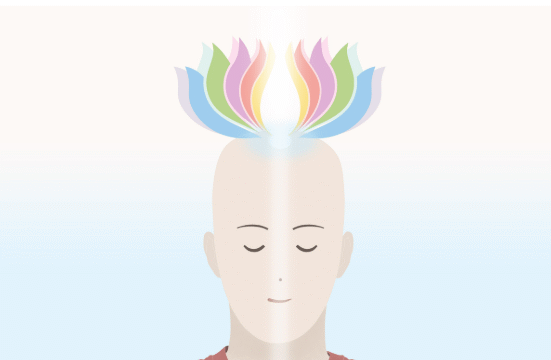Sleep is not merely a pause in our daily lives; it is a vital, restorative process that nurtures both body and mind. Yet, in the midst of our fast-paced world, many of us struggle to experience the deep, healing sleep that allows us to wake refreshed and energized. The good news is that deep sleep is not a distant dream—it can be cultivated through gentle, mindful practices that prepare the body and mind for rest. By understanding how to approach sleep with care, patience, and intention, anyone can unlock the rejuvenating benefits of a truly restful night.
The first step on the path to deep sleep is recognizing the environment in which you sleep. The bedroom is more than just a place to lay down; it is a sanctuary for relaxation. A room that promotes rest is cool, quiet, and dimly lit, allowing the body’s natural circadian rhythm to take the lead. Temperature plays a surprisingly important role in sleep quality. Cooler temperatures, generally between sixty-five and seventy degrees Fahrenheit, signal to the body that it is time to wind down. Darkness triggers melatonin production, the hormone responsible for sleep onset, while noise can interrupt the delicate cycle of rest. Consider softening lighting in the evening, perhaps with a lamp or warm-toned bulbs, and using curtains or blinds to shield your sleep space from external disturbances. Even the smallest adjustments can have a significant impact on your ability to fall asleep and stay asleep throughout the night.
Equally important is the concept of a calming bedtime routine. Rushing from the demands of the day into the bed often leaves the mind buzzing, making sleep elusive. Gentle routines that signal to your body that it is time to rest can transform the way you approach sleep. Activities such as reading a light, soothing book, taking a warm bath, or practicing gentle stretches allow the body to transition from wakefulness to restfulness. A consistent routine reinforces the brain’s understanding of when to prepare for sleep, making it easier to drift off naturally. Even a brief ten-minute ritual can be powerful if practiced consistently, as the body thrives on familiarity and rhythm.
Mindfulness and relaxation techniques also play a crucial role in achieving deep sleep. Stress and anxiety are among the most common barriers to restorative sleep. The mind, when overactive, prevents the body from entering the slower stages of sleep necessary for physical healing and cognitive restoration. Techniques such as deep breathing, guided imagery, or progressive muscle relaxation help calm the nervous system and prepare the body for restful sleep. For example, focusing on the breath while inhaling deeply through the nose and exhaling slowly through the mouth can slow heart rate, reduce tension, and quiet mental chatter. Over time, these practices create a sense of safety and comfort, inviting the body into a state where deep sleep can flourish.
Nutrition and lifestyle choices also influence the quality of sleep. Heavy meals, caffeine, and alcohol close to bedtime can disrupt the natural rhythm of the body and lead to fragmented sleep. Instead, focus on lighter, easily digestible snacks in the evening if hunger strikes, and consider herbal teas like chamomile or valerian root, known for their calming effects. Regular exercise during the day can enhance sleep quality, but timing matters—vigorous activity too close to bedtime may have the opposite effect. By tuning into the body’s signals and creating habits that honor its need for rest, you naturally pave the way for deeper, more restorative sleep.
Technology is another factor that can hinder deep rest. The glow of screens—phones, computers, televisions—emits blue light, which interferes with melatonin production and delays sleep onset. Creating a digital curfew an hour or more before bed allows the brain to wind down naturally. Instead of scrolling or checking emails, consider engaging in activities that nurture relaxation, such as gentle reading, journaling, or listening to calming music. By setting boundaries with technology, you give yourself the gift of an uninterrupted, peaceful night.
The body itself also benefits from gentle, nurturing touch and support. Investing in a comfortable mattress and pillows that align with your sleep preferences can make a profound difference. Supporting proper spinal alignment and pressure points allows muscles to fully relax, promoting deeper sleep stages. Even small adjustments, like switching to breathable bedding materials or optimizing pillow height, can enhance overall comfort. Remember, the body does not distinguish between comfort and rest—it responds to the environment by either tensing up or relaxing, so creating a space where ease is prioritized encourages restorative sleep naturally.
It is also important to approach sleep without pressure or frustration. Many individuals struggle with anxiety about falling asleep, which paradoxically makes sleep even more difficult to achieve. Adopting a gentle, patient mindset can transform the experience. Accepting that sleep will come in its own time, without forcing it, helps remove the mental tension that blocks deep rest. Mindful awareness of the present moment—focusing on sensations, breathing, and relaxation rather than on the ticking clock—can help the mind release worries and embrace rest.
Finally, cultivating a sense of emotional and mental balance during the day supports sleep at night. Engaging in activities that bring joy, satisfaction, and calm reduces the overall stress load carried into the evening. Meditation, spending time in nature, creative expression, and connecting with loved ones all contribute to a serene inner state. When the mind feels lighter and the body feels nurtured, sleep becomes not only possible but deeply restorative, allowing for physical healing, emotional processing, and cognitive clarity.
The journey toward deep, healing sleep is a gentle one, requiring patience, consistency, and care. It is not achieved through force or medication alone, but through a holistic approach that respects the rhythms of the body and mind. By creating a sleep-friendly environment, developing calming routines, practicing mindfulness, making thoughtful lifestyle choices, and fostering self-compassion, deep sleep can become a natural, nightly experience. Each small step taken to honor the body’s need for rest accumulates, leading to nights of profound, restorative sleep and days filled with renewed energy, focus, and well-being. Sleep, when approached with gentleness, transforms from a fleeting necessity into a cherished act of self-care, unlocking the healing potential inherent in every night’s rest.






